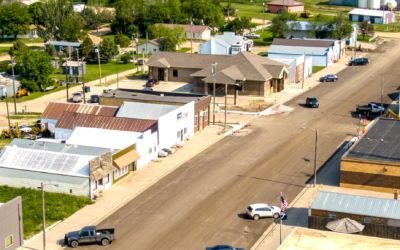Making Dollars and Sense Out of Cryptocurrency

Currency has taken many forms over the centuries. People have used everything from beads, ivory, weapons, and livestock to metal and paper to buy and sell goods and services. With digital technology expanding into every corner of society, even our money is going virtual.
First introduced in 2009, cryptocurrency is gradually gaining a foothold. The idea that cash doesn’t have to be cold or hard might have early mollusk shell traders rolling over in their graves. If you’re considering investing in crypto or simply wondering what all the fuss is about, read on.
What is Cryptocurrency?
Cryptocurrency is a digital, encrypted form of payment that enables people to buy, sell, and trade via secure transactions. Cryptocurrencies are decentralized, circulating without a central banking authority or government, and don’t require a third-party payment processor.
Bitcoin, the first — and most popular — form of cryptocurrency, was conceived by Satoshi Nakomoto (likely a pseudonym), whose white paper outlining the idea was introduced on October 31, 2008. Despite the timing, the concept of currency as a non-physical object was no trick. Today, over 5,000 different cryptocurrencies are in circulation; in addition to Bitcoin, others include Ethereum, Solana, and Cardano.
Cryptocurrency can be used to purchase goods and services but has not yet gained mainstream acceptance. Currently, only a few retailers — online or otherwise — accept it as a form of payment. There are workarounds, however. Companies like eGifter allow you to purchase gift cards using Bitcoin, and you can convert cryptocurrency into dollars through the BitPay app or prepaid debit card.
Crypto as a High-Risk Investment
Cryptocurrency is most popular as an investment tool. Traders buy and sell crypto the same way they invest in other stocks. Buying cryptocurrency requires a “wallet;” instead of a leather billfold brimming with cash, credit cards, and unredeemed punch cards from your favorite coffee shop, your currency is stored virtually in an online app. Once you create an account, you can transfer real money to purchase different cryptocurrencies.
Typically, crypto is sold through a dedicated cryptocurrency exchange like Coinbase. If you’d prefer a brokerage platform, a few online brokers, such as Robinhood and Webull, offer cryptocurrency in addition to the usual stocks and bonds.
Investing in cryptocurrency isn’t for the faint of heart. It’s a much more volatile market than traditional stocks and bonds due to its large price fluctuations. Bitcoin’s value, for instance, has oscillated between $3,237 in December 2018 to over $68,000 in November 2021. It’s about $37,000 as of this writing.
Blockchain Technology Provides Security
One of the most appealing aspects of cryptocurrency is its incredible security. It’s based on blockchain technology — a digital public ledger of buying and selling shared across a global network of computers. Each block in the chain documents transactions that all buyers and sellers on the network can access. Once the block reaches its storage capacity and is full, it receives a timestamp and is linked to the previously filled block, creating a chain of data. This process is called “mining.”
Because blocks are added in chronological order, it’s extremely difficult to go back and alter the contents. If a single block were tampered with, it would no longer match every other user’s copy in the network and would be discarded. A hacker would have to change every block in the chain in order to compromise the system — a virtual impossibility.
A Bitcoin blockchain, therefore, contains a record of every single transaction. Fund transfers occur directly between the sender and receiver without a third-party intermediary. Each user has full control over their bitcoin; it cannot be accessed without their unique cryptographic key, similar to an advanced password. Blockchain payments are considered more secure than those made with credit or debit cards. Because the user doesn’t have to provide any sensitive information, the risk of identity theft is extremely low.
The Future of Cryptocurrency
Cryptocurrency does have a few drawbacks. Without a third party involved, there is no buyer protection; once a payment has been sent, it cannot be retrieved. The lack of a central banking authority means there is no guaranteed minimum valuation. And those wild price fluctuations make it a risky investment built upon speculation. The future of cryptocurrency is uncertain.
Yet, interest is stronger than ever. Experts believe government regulation could make cryptocurrency safer for investors and persuade more companies to adopt it as a valid form of payment.
But don’t get rid of that piggy bank just yet.
Golden West does not endorse any of these products or services.
Sources: Some information for this article was provided by online articles from Investopedia.com, Forbes.com, Coindesk.com, Yahoo! Finance, Coinbase.com, Euromoney.com, and PBS.org.



